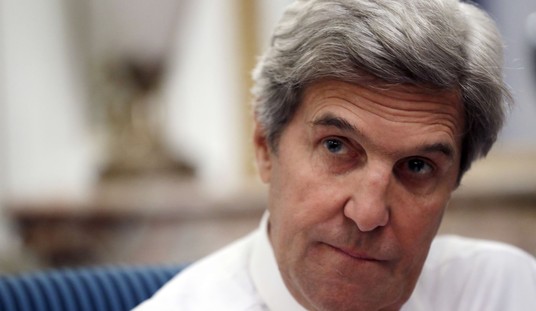After Israel's smashing victories over Iran last year, Prime Minister Benjamin Netanyahu believed the time was right to attack Iran's nuclear infrastructure.
There's so much redundancy in Iran's program that the prospect of destroying its nuclear capabilities completely, as Israel did in 1981, when it attacked the Osirak reactor complex in Iraq, is not favorable.
But Netanyahu believes that with the help of the United States, Israel can set back Iran's nuclear program a year or more. For the last several months, the two sides have had serious discussions about how to carry out an effective attack.
The Trump administration eventually decided to try diplomacy first. Trump is fearful of being drawn into another Middle Eastern war that would only strengthen China.
Last year, Iran's feeble attacks on Israel were almost all swatted away by U.S. and Israel anti-missile systems. In those attacks, Israel was aided by the U.S. and its Arab neighbors. Iran's air defense systems were also destroyed in Iran and Syria, as well as facilities that manufactured fuel for those missiles, leaving the Islamic Republic wide open to a coordinated attack for months to come.
Netanyahu wanted to go.
Initially, at the behest of Mr. Netanyahu, senior Israeli officials updated their American counterparts on a plan that would have combined an Israeli commando raid on underground nuclear sites with a bombing campaign, an effort that the Israelis hoped would involve American aircraft.
But Israeli military officials said the commando operation would not be ready until October. Mr. Netanyahu wanted it carried out more quickly. Israeli officials began shifting to a proposal for an extended bombing campaign that would have also required American assistance, according to officials briefed on the plan.
Some American officials were at least initially more open to considering the Israeli plans. Gen. Michael E. Kurilla, the head of U.S. Central Command, and Michael Waltz, the national security adviser, both discussed how the United States could potentially support an Israeli attack, if Mr. Trump backed the plan, according to officials briefed on the discussions.
Since Donald Trump took office, the U.S. has been repositioning a large number of deadly military assets in the region, including:
- USS Harry S. Truman carrier strike group
- USS Carl Vinson carrier strike group
- Several A-10 Warthogs and 300 airmen
- F-35 fighter-bomber squadron
- Six B-2 stealth bombers
- C-17 cargo jets
- KC-135 refueling tankers
- THAAD missile-defense system
- Two Patriot missile defense batteries.
Gen. Michael E. Kurilla, the head of U.S. Central Command, is reportedly in favor of the Israeli plan to attack Iranian nuclear facilities, as is national security advisor Mike Walsh.
All of those military assets could have been used against the Houthi terrorists. The White House acknowledged to the Times that they could also be deployed against Iran.
It's not that Iran hasn't been warned.
“Every shot fired by the Houthis will be looked upon, from this point forward, as being a shot fired from the weapons and leadership of IRAN,” Trump posted on Truth Social last month, adding, “IRAN will be held responsible, and suffer the consequences, and those consequences will be dire!”
According to the Times report, several members of Trump's national security team opposed an Israeli strike.
In a meeting this month — one of several discussions about the Israeli plan — Tulsi Gabbard, the director of national intelligence, presented a new intelligence assessment that said the buildup of American weaponry could potentially spark a wider conflict with Iran that the United States did not want.
A range of officials echoed Ms. Gabbard’s concerns in the various meetings. Susie Wiles, the White House chief of staff; Defense Secretary Pete Hegseth; and Vice President JD Vance all voiced doubts about the attack.
Even Mr. Waltz, frequently one of the most hawkish voices on Iran, was skeptical that Israel’s plan could succeed without substantial American assistance.
When Netanyahu heard that Trump wanted to put the strike plan on hold, he flew to Washington to discuss it. Under the guise of talking about tariffs, Trump took the opportunity to announce the talks with Iran.
Trump told the Israeli prime minister that he didn't want to assist the Israelis in a strike while the talks were going on. The next day, he said, “If it requires military, we’re going to have military. Israel will, obviously, be the leader of that.”
“President Trump has been clear: Iran cannot have a nuclear weapon, and all options remain on the table,” said Brian Hughes, a National Security Council spokesman. “The president has authorized direct and indirect discussions with Iran to make this point clear. But he’s also made clear this cannot go on indefinitely.”
There's a clock ticking in the president's head. It won't take very much for Trump and Netanyahu to unleash their militaries and bring Iran's dreams of building a nuclear weapon to a crashing halt.










